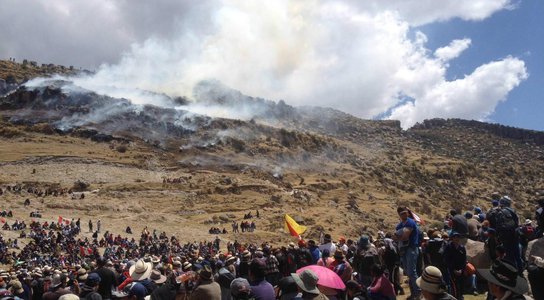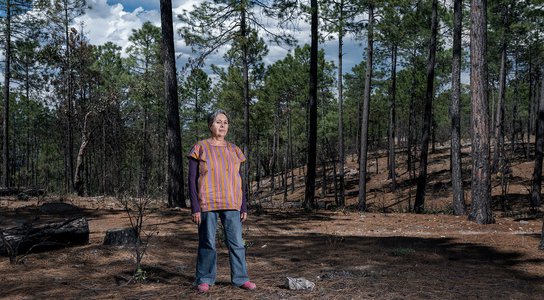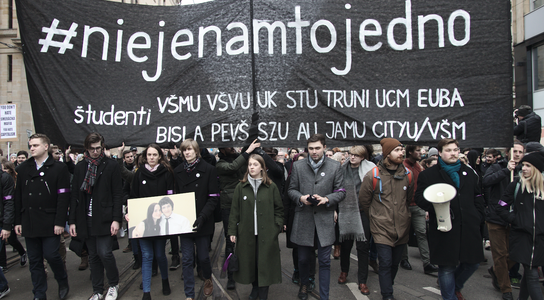This week the comedian Frankie Boyle caused a backlash when he tweeted, “many British newspapers on the verge of going bust, so there’s never been a more important time not to buy one”. People were quick to point out the hypocrisy of someone who used to write for The Sun now craving its demise, or the lack of feeling for those who would lose their jobs if news organisation closed. But if the media goes into chronic decline, it won’t necessarily be the political cheerleading or crass celebrity stories that people like Boyle rail against that disappear. It will be some of the most important – but often the most challenging and time consuming – forms of journalism that get squeezed, including those which, like Global Witness investigations, look into the darkest dealings of the rich and powerful.
News organisations, like thousands of other businesses, are struggling. Newspaper sales have declined by over 30% with newsagents closed. Advertising revenue has plummeted as the economy braces itself for further heavy knocks in the months ahead. Thousands of journalists have already been put on the furlough scheme, others – including at papers like The Evening Standard, Yorkshire Post and the Scotsman – have taken pay cuts. There are rumours that longstanding titles like The Guardian may be forced to abandon their print editions altogether and go online.
Of course, this has not happened out of the blue. The decline in newspaper revenue has been a trend for over a decade. But coronavirus has acted like a wrecking ball, crashing through organisations that were already scrambling for survival.
One likely impact of this is the reduction – if not the removal – of the vital, but more expensive, work of investigative journalists. These are the people who spend months wading through financial data, travel the world trying to corroborate a story they’ve heard and go into battle with internal legal teams to get stories published that place themselves – and their employers – at risk of being sued. They are the people who shine a light into some of the murkiest areas of our politics, our economy and those who control them.
The scandals of thalidomide, MPs expenses, abuse by undercover police and phone-hacking were the culmination of months of investigation and caused shockwaves across the country. In the US, the exposure of Harvey Weinstein spawned a new global feminist movement. The dissection of Edward Snowden’s leak of NSA data triggered a series of major diplomatic crises. And the analysis of the Panama Papers has led to over 150 inquiries, audits and investigations by police, customs, mafia prosecutors, judges and courts, tax authorities and Parliaments in 79 countries.
This work is slow and laborious. Amelia Gentleman, who exposed the scandal of the deportations of the Windrush Generation, has talked about spending two years gathering stories from the people involved. Our own investigation exposing Shell’s scandalous oil deal in Nigeria, which has led to a series of court cases and tens of millions of dollars being recovered by Nigeria, took several years. And our work to uncover the financial links between Myanmar’s military generals and the country’s vast jade trade had to be tracked over 12 months.
It is also true that investigations don’t always yield results, or they take you off in directions you couldn’t envisage when you started. Investing in this kind of work can be frustrating. There are very few quick wins or easy scalps, but there is no doubt that the media will be a much weaker force if it disappears.
Exposing the secrets of powerful people, companies and governments can be precarious. We continue to see investigative journalists targeted by those who want to stop the truth being made public. People like Ahmed Hussein-Suale Divela, a Ghanian journalist, who was shot after a Member of Parliament made threats against him for his work on the corruption in African football. Or Eduardo Dizon, who was killed after his reporting on an alleged investment scam in the Philippines. It is also true that in some countries, like Hungary, we’ve seen the use of legislation intended to help manage the coronavirus outbreak used to silence the media.
Luckily in the UK, we don’t face these challenges. It may infuriate you, it may bore you, it may make you want to scream and shout, but we have a long history of a free press, largely able to pursue the rich and powerful unfettered by a hostile legislative environment and without taking too many personal risks. It’s not perfect. We’ve been concerned about government measures that might inadvertently prevent access to information about the use of secretive trusts to store money. But it is true that some of the best and most impactful investigative journalism still takes place in our country. And we can’t take that for granted.
When we emerge from the current nightmare, we will need to think about what we want to safeguard and what we’re happy to lose. Investigative journalism might seem like an easy cost-saving to make, but in reality we’d all be the poorer.
The media is likely to become even more dominated by billionaire owners who don’t see them as potential businesses, but as vanity projects to promote their own narrow interests. There will become a greater reliance on ‘clickbait’ journalism, as revenues rely on online advertising. And we may see the growth of advertorial journalism, where companies or individuals pay for coverage.
And those whose rights have been ignored, whose health has been compromised, whose money has been stolen, who have been harassed, abused, assaulted, or have been fighting a long and lonely battle for justice will find it even harder to be heard. It is their stories that are often at the heart of investigations that lead to real change.
We cannot allow investigative journalism to become another casualty of the crisis wrought by coronavirus. If we do, it will be the powerful, the corrupt and the wealthiest who get to rest a little easier, safe in the knowledge that the bright glare of scrutiny and fear of exposure has dimmed.


